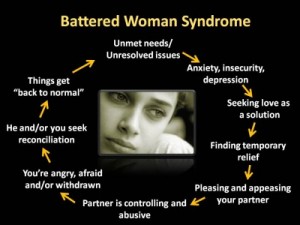The Three Stages of Domestic Violence
Stage One: Tension-Building
Rather than using mutual communication, negotiation, or compromise to solve problems, violent individuals tend to rely on the use of force or coercion to get what they want.
Typically, violence occurs after a buildup of tension in the relationship about issues that are not directly discussed or resolved.
During this period, tension mounts, communication decreases, and both partners may feel tense, edgy, and jumpy. Arguments and criticism tend to increase during this period.
Stage Two: Violence
After this buildup, physical violence may erupt over seemingly insignificant issues. Tension seems to be released, and often, the relationship seems to improve.
Stage Three: Seduction
Perpetrators of violence often apologize, make promises to change, and pay special attention to their partners immediately following a violent incident.
This period is sometimes referred to as the “honeymoon period” because of the positive feelings resulting from the release of tension and the hope that things will change for the better.
This kind of spontaneous change rarely occurs, however, because the underlying pattern of control and lack of communication and compromise has not changed. But with the help of a trained professional therapist, recovery can begin for both spouses.
What to Do If Your Partner Has Been Violent with You
Talk to someone about your feelings. Since relationship violence is traumatic and overwhelming, it is important for you to have support. If you find that family or friends are not able to understand, or cannot offer all the support you need, there are many agencies and organizations with trained professionals who can assist you in a caring, confidential manner.
Know that you are not alone. More than 50 per cent of women in the U.S. report having experienced violence at the hands of a spouse or romantic partner.
Know that you are not to blame. You may have been told that it’s your fault and that you provoked the violence. You may even feel guilty and ashamed. It’s important to recognize, however, that violence is the choice of the abuser: you cannot make that choice for them.
Plan for your safety. Once violence has occurred in a relationship, it’s likely to happen again. It’s important to prepare and protect yourself from future violence.
Talk to a trusted friend or relative about what’s happening and arrange to stay with that person when things get bad.
Keep a spare set of keys and some money in a place where you can get them in a hurry.
If you decide to leave, consider seeking a protective order. A protective order is a court order that can remove the abuser from their residence if that residence is shared with you, forbid the abuser from communicating with you or going near your place of residence or employment, and order the abuser to attend counseling or a batterer’s treatment program.
Sonya

